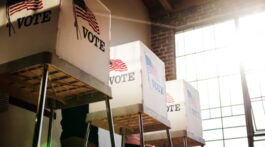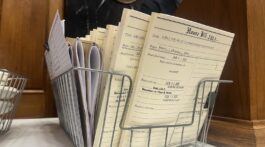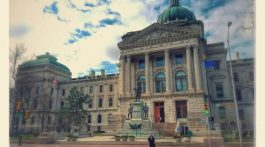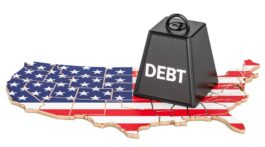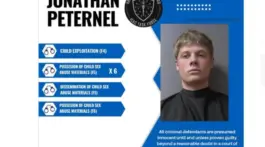A new statewide survey suggests Indiana Republicans may be walking into a political buzzsaw of their own making.
With GOP leaders set to huddle this week to consider a special legislative session for mid-decade redistricting, a new poll commissioned by Unite America shows that Hoosiers — including Republican primary voters — overwhelmingly oppose the idea.
The poll found that 44% of Hoosiers reject the notion of redrawing congressional maps outside the regular redistricting process. Only 31% support it. And when voters heard arguments from both sides of the debate, opposition spiked to 69%, with just 21% in favor.
The timing is awkward for the Indiana GOP. The debate comes just days after Vice President JD Vance visited the state to rally support for the proposal — a sign of how invested the Trump political machine has become in the Hoosier map fight.
“Voters across Indiana — including a majority of Republicans — are sick of partisan games that put party over country,” said Unite America Executive Director Nick Troiano. “If lawmakers want to build trust, they’d be wise to focus on issues that directly affect Hoosiers’ everyday lives, instead of wasting taxpayer dollars to further gerrymander Indiana’s congressional districts, which are already among the least competitive in the country.”
Numbers That Should Make Republicans Nervous
The poll, conducted by 3D Strategic Research, surveyed 500 registered voters and an oversample of 450 Republican primary voters between Oct. 7 and 9.
Among the findings:
-
Only 10% of voters support calling a special session for redistricting.
-
28% of GOP primary voters said they would be less likely to support a candidate backing mid-decade redistricting, compared to just 17% who would be more likely.
-
When asked to rank 14 issues, redrawing congressional maps finished dead last for Republican primary voters.
The poll also probed another brewing fight at the Statehouse — a push to close Indiana’s primaries to registered party members only. If adopted, that would sideline roughly 2 million independent voters in a state where congressional races are effectively decided in primaries.
Initially, 52% of voters opposed closing the primaries. After hearing both sides, that number jumped to 77%, including 66% of Republican primary voters.
“Every voter should have the freedom to cast a ballot in every taxpayer-funded election,” Troiano said. “I’m not surprised Indiana voters don’t want to give up that right.”


